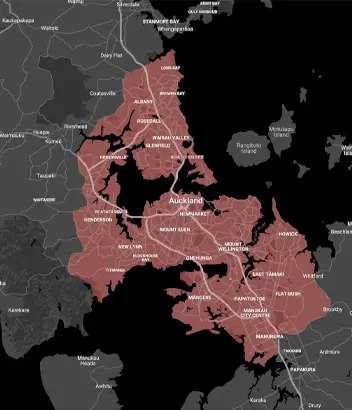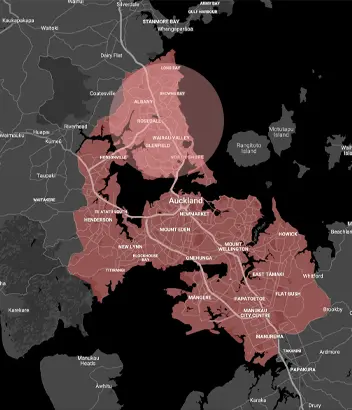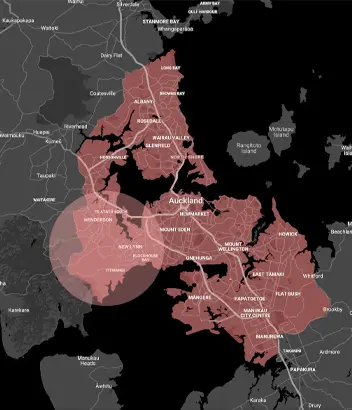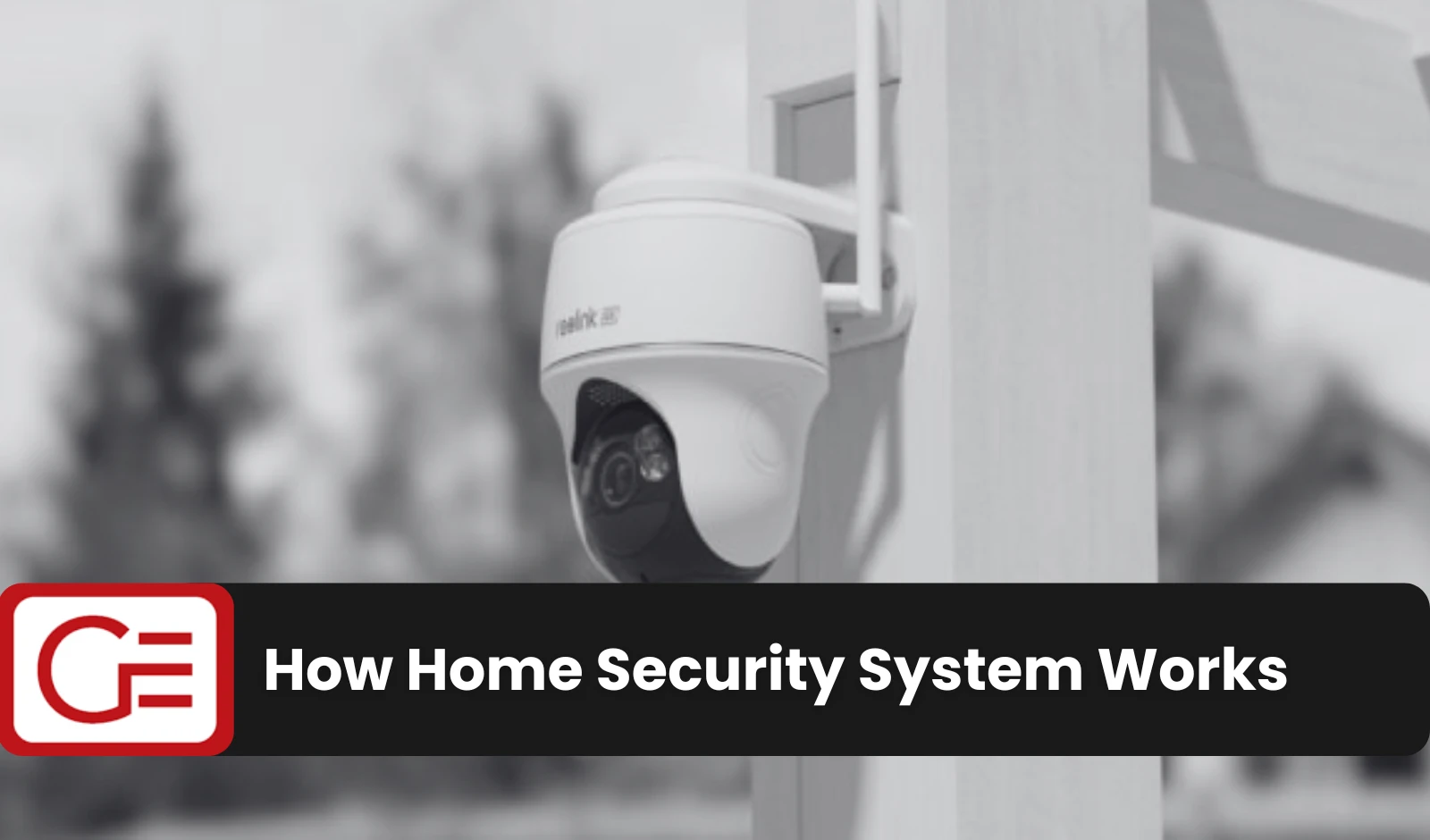

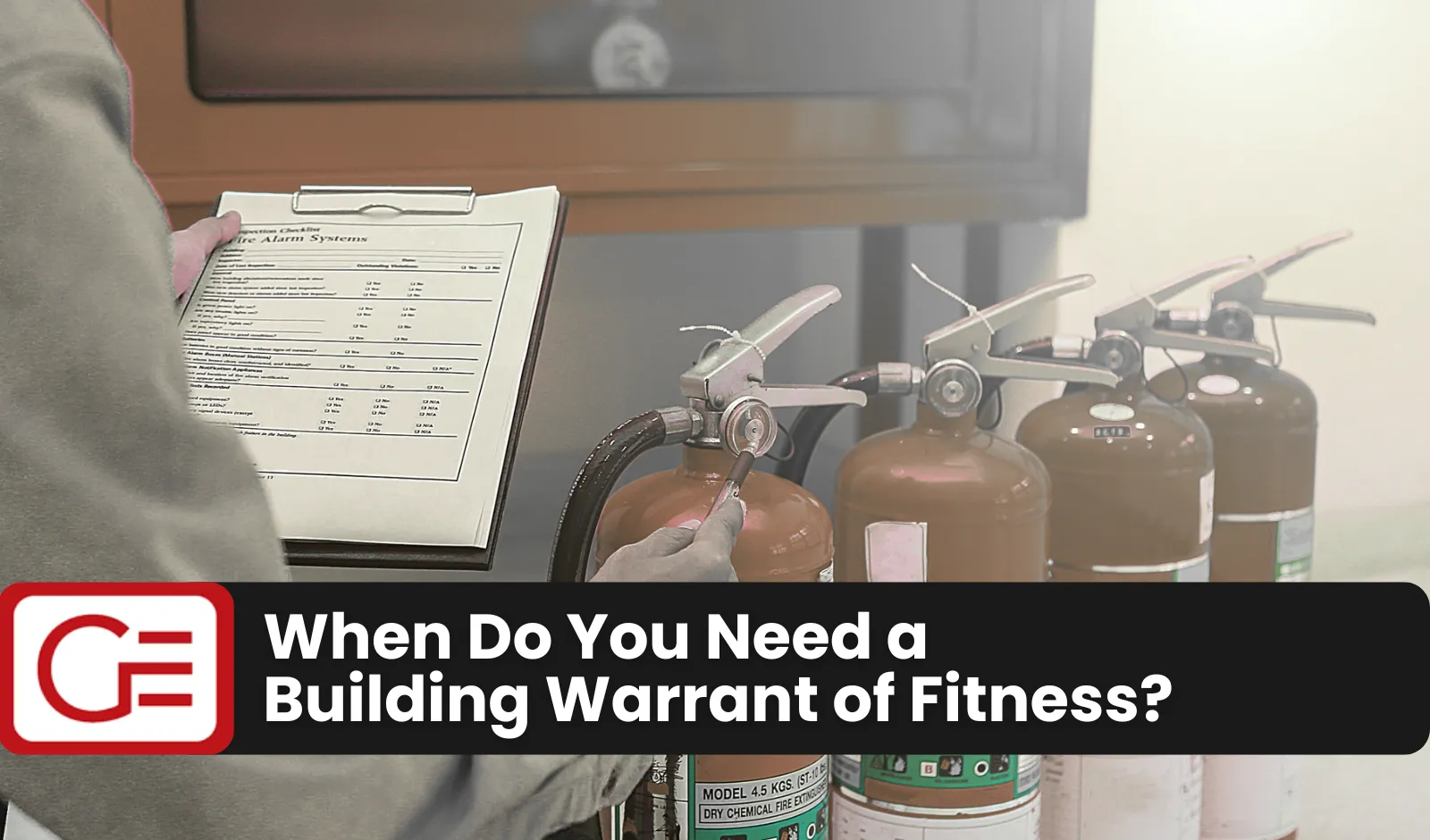
Keeping your building safe and compliant isn’t just a formality, it’s a legal responsibility under the Building Act 2004. For property owners, knowing when a Building Warrant of Fitness (BWoF) is required is essential to staying on the right side of the law while ensuring the safety of everyone inside.
This guide explains when you need a Building Warrant of Fitness, what it covers, and how the inspection, maintenance, and reporting process works in practice.
.webp)
What Is a Building Warrant of Fitness (BWoF)?
A Building Warrant of Fitness (BWoF) is an annual certificate confirming that all specified systems in the building have been properly inspected, tested, and maintained according to the compliance schedule issued by the local council.
Think of it as your building’s annual “health check.”
It ensures vital safety systems such as fire alarms, emergency lighting, automatic doors, and ventilation systems work as intended, keeping the building safe and functional for all occupants.
Each BWoF is signed by the building owner, supported by certificate Form 12A documents from Independent Qualified Persons (IQPs). These certificates confirm that the systems have been inspected, maintained, and fully complied with performance standards over the previous 12 months.
When Is a Building Warrant of Fitness Required?
A warrant of fitness (BWoF) is required for any building that contains specified systems, meaning systems that contribute to the building’s safety or essential services.
You’ll need a BWoF if your property:
- Has systems listed on the compliance schedule (such as sprinklers, lifts, or mechanical ventilation).
- Requires building consents that include new or altered safety systems.
- Falls under the category of a commercial, public, or multi-unit residential building.
In short:
If your building has systems that must function to keep people safe, like fire alarms or emergency lighting, it needs a current Building Warrant of Fitness displayed at all times.
Private homes or simple residential dwellings without specified systems typically do not require a BWoF.

Who Is Responsible for the Building Warrant of Fitness?
The building owner holds legal responsibility for ensuring the warrant remains valid. This includes organising inspections, keeping maintenance records, and submitting all required documents to the local council every year.
To meet these obligations, owners must engage Independent Qualified Persons (IQPs), trained specialists approved to inspect and test specific systems. IQPs play a critical role in confirming that all systems have been inspected and maintained in accordance with the procedures of the compliance schedule.
The IQPs provide certificate Form 12A for each system, verifying that inspection, maintenance, and reporting procedures have been completed to the required standard. These certificates then support the building owner’s annual Form 12, which becomes the official Building Warrant of Fitness.

The Inspection, Maintenance, and Reporting Process
Maintaining compliance isn’t a once-a-year event, it’s an ongoing process that ensures every system remains safe and operational. Here’s how it typically works:
- Regular Inspections:
IQPs assess each system listed on the compliance schedule, such as fire alarms, lifts, and emergency lighting, to ensure they meet performance requirements.
- Maintenance and Repairs:
Any issues discovered during inspections must be repaired promptly. This keeps the building safe and ensures all systems are operating correctly before certification.
- Annual Reporting:
Over the previous 12 months, the building owner collects Form 12A certificates from IQPs. These form the basis of the annual written reports submitted to the local council.
- Submission and Display:
The owner signs and submits the Form 12 (BWoF) to the council, confirming that all systems have been inspected and that the building has fully complied with the Building Act 2004. The certificate must then be displayed publicly in the building.
This process creates transparency and accountability, everyone who enters the property can see that it meets national safety standards.
Common Mistakes That Cause Delays
Even with good intentions, some building owners struggle to maintain their warrants of fitness. Common pitfalls include:
- Forgetting to book annual inspections with IQPs.
- Missing or incomplete Form 12A certificates.
- Failing to repair identified issues before submitting documents.
- Not displaying the current warrant of fitness in the building.
Avoiding these mistakes helps prevent compliance issues and potential penalties from the territorial authority.
Why Electrical Systems Matter in Your BWoF
Electrical safety plays a crucial role in your building’s warrant of fitness. Systems such as emergency lighting, fire alarms, and electrical switchboards must be maintained to strict safety standards.
Regular electrical inspections ensure your systems continue to meet the performance standards required by the compliance schedule. Partnering with experienced, registered electricians ensures these systems remain safe, reliable, and compliant year-round.
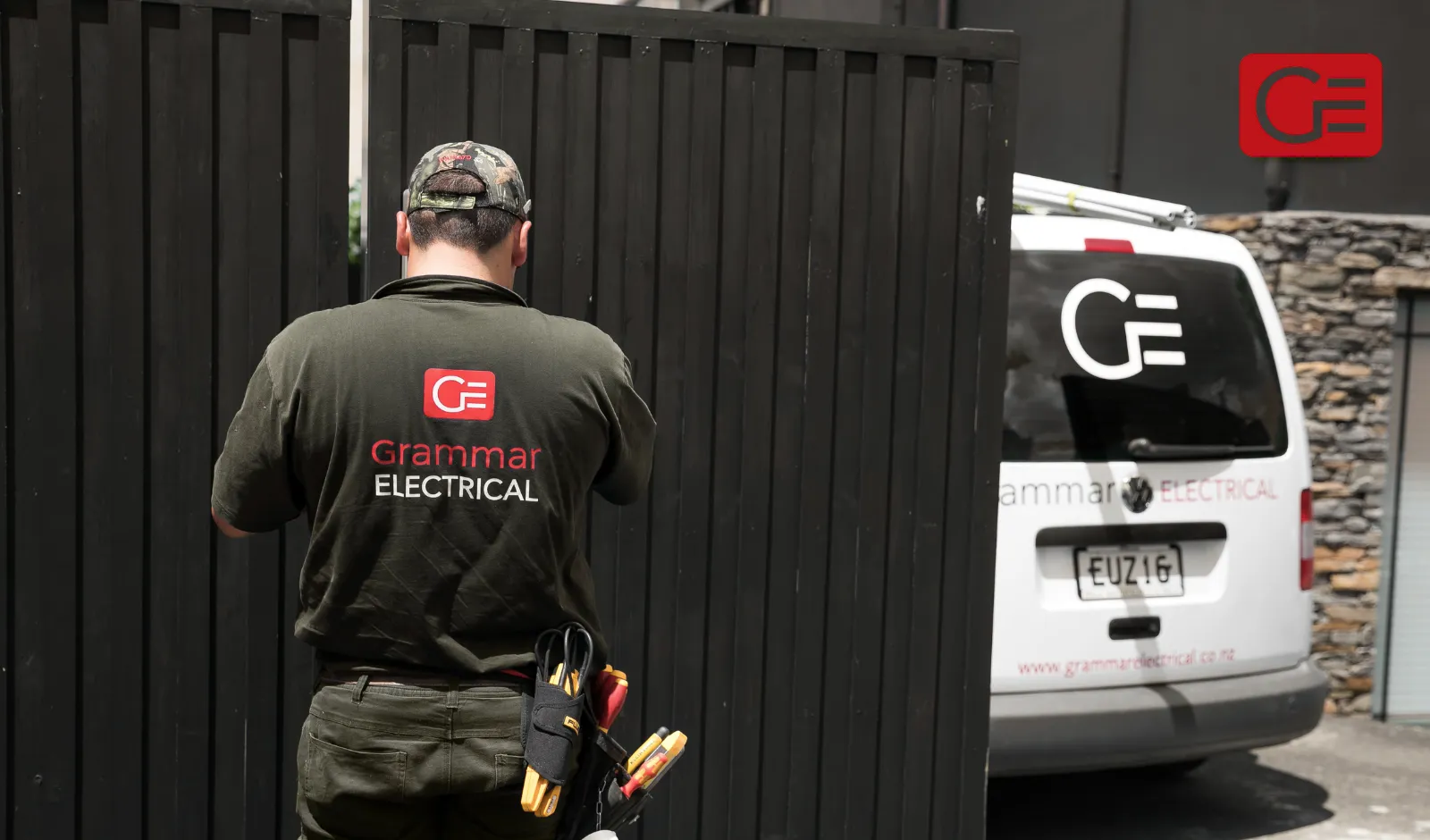
Your Trusted Experts in Building Safety and Compliance
When it comes to building warrants and electrical safety, Grammar Electrical is Auckland’s trusted team. With decades of experience supporting building owners, property managers, and businesses, we make the process straightforward from start to finish.
Our services include:
- Electrical maintenance for fire alarms, emergency lighting, and safety systems
- Compliance documentation and testing for annual inspections
- Fast response and transparent communication throughout the process
- Emergency electrician support for urgent electrical issues
With Grammar Electrical, you can be confident your building’s specified systems will meet all performance standards and that your property will stay fully compliant under the Building Act 2004.
Call us today on 09 884 6611 or book online to save $15, your reliable partner for electrical safety and building compliance in Auckland.
Auckland’s Trusted Electricians
Fast, reliable electrical repairs, installations & upgrades - available 24/7.
Book Online & Save $15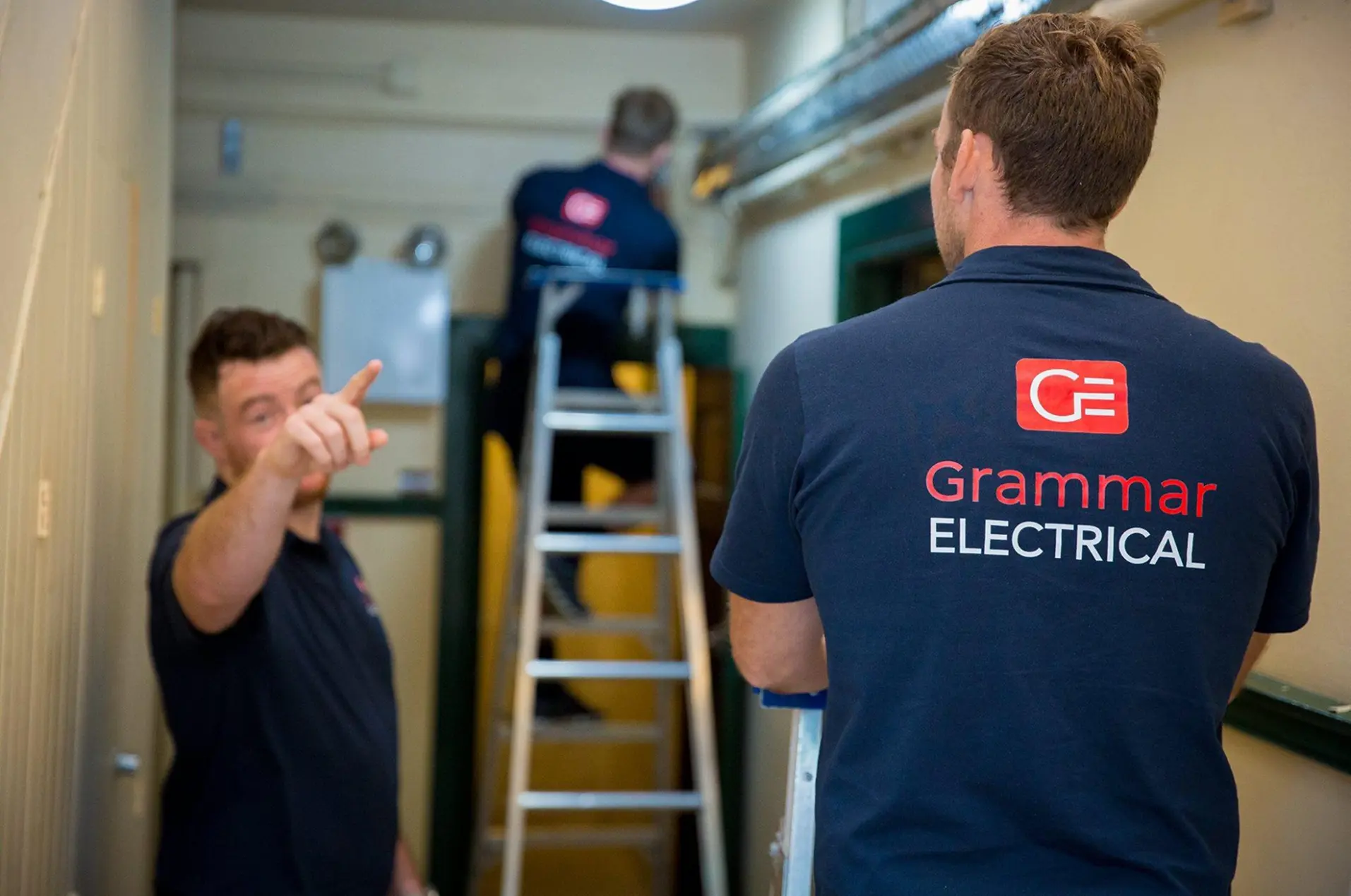
Got a question?
Contact us for a FREE installation quote or book your job online today.
Same Day Service Guarantee - Terms & Conditions

The "Same Day Service Guarantee or it's Free" applies to:
a. Residential work and Commercial only.
b. Jobs specified as needing same day service when booking a job by phone or online.
c. Residential and Commercial work booked with Grammar Electrical:
i) Before 11:00AM
ii) For calls or online bookings received after 11:00AM, the customer will be offered a job. Booking for the next business day and normal callout fees ($170+ GST) will apply.
iii) Any other jobs booked outside business hours (9:00AM - 5:00PM Monday- Friday) will incur after hours charges.
iv) This offer is excluded for jobs booked on New Zealand public holidays.
d. If Grammar Electrical are unable to attend on the same day (within 24 hours) for a job booked by the customer, the standard callout fee of $170 + GST will be waived and is free, but all other normal charges, fees and expenses will apply to perform the Electrical Services and to provide any products/materials concerning those services.
e. The Standard Callout Fee will be deducted from your bill as long as you pay within your invoice's due date. The callout charge is applicable if your invoice is overdue.
f. If Grammar Electrical are willing and able to perform the Service or provide the Goods on the same day the job is booked, however the Customer for whatever reason does not give access to their property on the day, Grammar Electrical will be deemed to have complied with it's "Same Day or it's Free" guarantee and shall be entitled to charge the customer the standard call-out fee.
g. This offer is not a guarantee of work being completed. The completion of the job will depend on stock availability and also the amount of work required.















